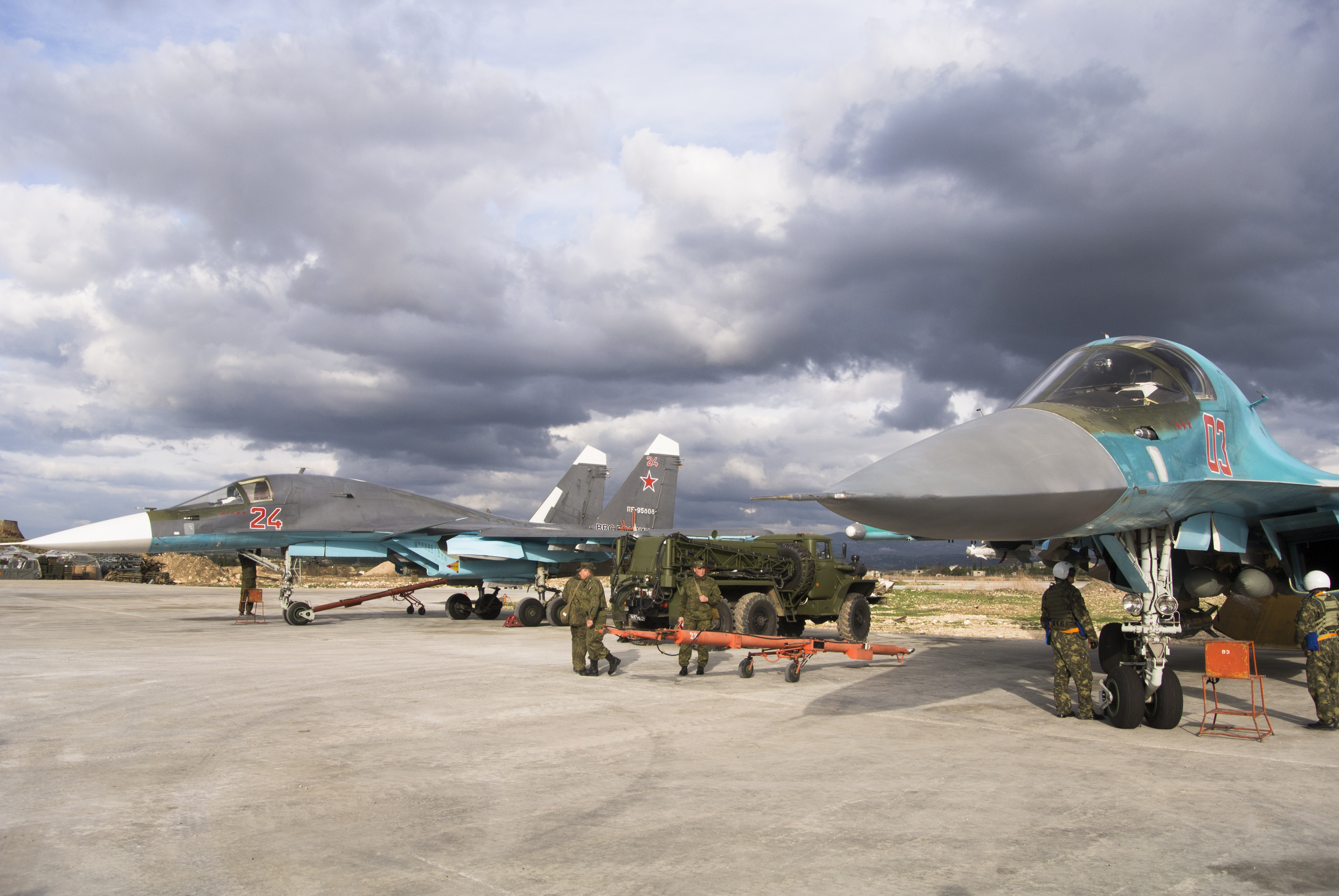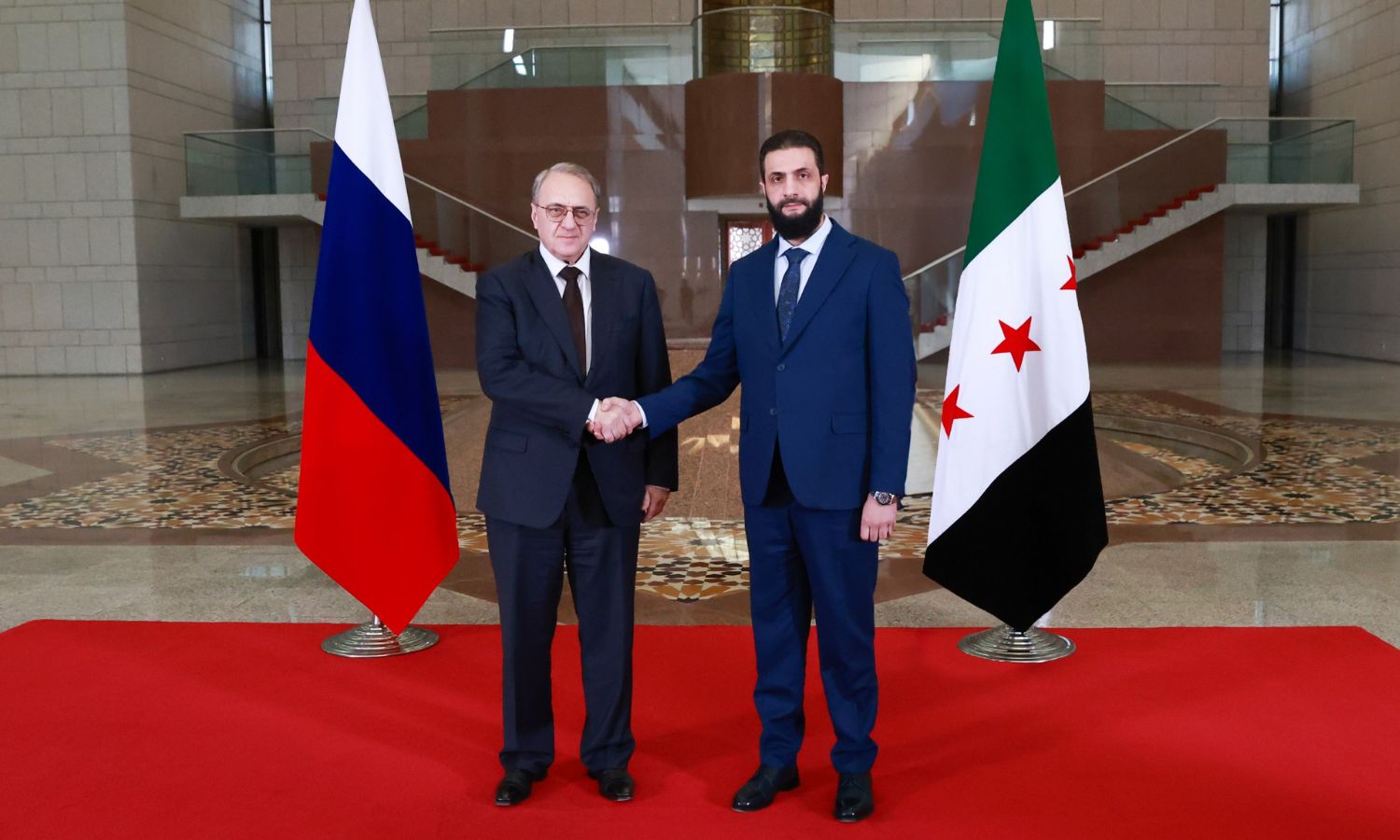How Russia Is Working to Restore Its Relations With the New Syrian Administration

“The EU and the U.S. have urged the Syrian interim administration to expel Russian forces from the country.”
With the increasing contacts and rapprochement between Russia and the Syrian interim administration, there are urgent questions about the repercussions of this on the Syrian interior, as well as relations with Europe and the U.S.
Russia, which participated in the military suppression of the Syrian revolution alongside the ousted regime of Bashar al-Assad for a decade, which contributed to prolonging the conflict, was among the occupations that undermined Syrian sovereignty and isolated it from the international community, exacerbating the country's security and economic crises.
The official Russian military intervention on September 30, 2015 was not merely to support a tyrannical ally, but rather came to achieve broad strategic interests in the region, according to observers, as Syria was the last major ally of the Kremlin in that region.
In addition, the Russian military bases in Syria have become part of its long-term military strategy, which allowed it to strengthen its presence in the Mediterranean and confront Western influence in the Middle East.
Possible Deal
Bloomberg recently revealed that Russia is close to reaching a deal with the Syrian interim administration that would allow it to maintain a limited military presence in Syria, represented by some personnel and military equipment.
It noted that the potential deal could represent Russia's second major foreign policy victory this month, after the U.S. announced that it would begin peace talks with Moscow on how to end the crisis in Ukraine.
A source also indicated that Russia could help in the fight against ISIS that is active in eastern Syria, while another source said that the continued Russian presence could help Syria's new leaders strike a balance with Western countries.
European officials were keen on the withdrawal of Russian forces from Syria weeks ago, but others remain concerned that Russia could reposition itself in Libya if it loses its military bases in Syria.
Over the past two months, Russia has withdrawn its personnel and military assets from most of its positions inside Syria, with the exception of Hmeimim airbase and Tartus naval base, which are of great strategic value to Moscow given their location on the Mediterranean.
At his annual news conference in December 2024, Russian President Vladimir Putin said Russia offered Syria’s new leaders to use its bases for humanitarian aid deliveries and suggested Moscow could offer other incentives.
But officially, the Russian Foreign Ministry recently revealed that Moscow seeks to develop relations with Damascus, and that the issue of Russia’s military presence there is still under discussion.
Russian Foreign Ministry spokeswoman Maria Zakharova stated: “We are committed to and interested in the continued and active development of Russian-Syrian bilateral relations in various fields.”
She quoted Putin as affirming Russia’s support for Syria’s territorial integrity, sovereignty, and stability, noting that Moscow is ready to review all agreements it has concluded with previous Syrian governments.

Russian Privileges
Observers believe that the Russians are trying to offer various incentives to strengthen relations with the Syrian interim administration - including political, diplomatic, and even financial - with the aim of preserving the privileges that Putin has accumulated in Syria, and ensuring that he remains an influential player in the Middle East.
In light of the unpredictability of the possible course of Russian-Syrian relations, Putin spoke with Syria’s interim leader Ahmed al-Sharaa.
Before the exceptional call, Russian officials demanded the lifting of sanctions on Syria, expressing their readiness to participate in the country's reconstruction process.
After the call, the Syrian interim administration announced that a batch of Syrian money had arrived in the country, after being printed in Moscow, without mentioning the size and quantities of this money.
But the above is nothing compared to Russia's actions in Syria, whether in terms of supporting the Assad regime or even destroying the country's infrastructure, failing to kill and wound thousands of civilians.
In addition, the first-of-its-kind contact between the two leaders came to reveal the difficulty of tearing apart - as European countries demand - a long-standing relation that has linked the two countries over many decades, despite all the setbacks or painful legacy, as Russian Foreign Minister Sergey Lavrov described the military intervention in Syria.
Putin's call with al-Sharaa, who was one of Russia's fiercest enemies two months ago, expresses the two countries' desire to move beyond the era of the Syrian war with the aim of resuming the relation according to new foundations that serve the principle of zero problems from which the new Syrian diplomacy is based, while ensuring the preservation of common interests between them.
The Syrian interim administration finds it inevitable to maintain balanced relations with Russia, due to the reliance of the previous Syrian military system on Russian technologies, amid Syria's efforts to attract Moscow's voice in the Security Council and many international forums, and also as a result of the lack of clarity of the goals of some countries from interfering in the Syrian affairs, such as the U.S. and “Israel”.
Damascus believes that Russia can play a role in balancing these roles, controlling their repercussions, or mitigating their effects.
There is no doubt that the Syrian interim administration is taking great risks by re-engineering its relationship with Russia, due to the pressures it is facing from some European countries, such as Germany and France, to prevent Moscow from playing any role in Syria’s future.
Internally, the popular mood is divided into two groups: one group rejects any relation with Russia because of its crimes against the Syrian people, and another group finds a stark contradiction between the early amnesty for some countries that supported the Assad regime for several years, and the insistence on punishing a portion of the Syrian people as a form of transitional justice.

Complex Relations
On February 6, Syrian Defense Minister Murhaf Abu Qasra stated that Syria is open to allowing Russia to maintain its air and naval bases along the Mediterranean coast, as long as any deal with the Kremlin serves the country’s interests.
He said in an interview with the Washington Post that Russia’s position toward the Syrian interim administration has improved significantly since the fall of the Assad regime, noting that Damascus is still studying Moscow’s demands.
Regarding the Syrian opposition’s previous exposure to bombing by Russian fighters in the north of the country before the fall of the Assad regime, Abu Qasra said: “In politics, there are no permanent enemies.”
On February 4, Syrian Interior Minister Ali Kida stated that cooperation with Russia serves Syrian interests.
In the same context, Syrian Foreign Minister Asaad al-Shibani stressed on February 12 that the problem with Russia and Iran was due to their military support for the Assad regime.
He pointed out that the Syrian administration received positive messages from Tehran and Moscow, stressing the need to transform these messages into a clear policy that would reassure the Syrian people.
The path to correcting the Russian-Syrian relation was marred last week by several obstacles, the most important of which was Lavrov’s statement about the problems of the new authorities in Syria, and his indication that the internal dialogue in Syria is not going well, which expresses Russian reservations about the roadmap for the transitional phase.
In addition, the Syrian interim administration obstructed the passage of a Russian military convoy from the Hmeimim base in the Latakia countryside to Tartous, which can be interpreted as a Syrian response to Lavrov’s statement or a type of pressure on Moscow not to interfere in internal affairs.
Although Moscow downplayed the importance of canceling the Tartous port investment contract on the pretext that the contracting company is a Russian-Syrian company belonging to the private sector and not a state-owned company, this measure may indicate the extent of the complexity of the relationship between the two sides, and the difficulty of taking signals that would reveal the fate of this relation.
It is noteworthy that Putin’s call with al-Sharaa came two weeks after a Russian delegation headed by Mikhail Bogdanov visited the Syrian capital, Damascus.
The talks held during the visit were described as good and constructive, with the Syrian Foreign Ministry pointing to the need to correct past mistakes.

Observers believe that the continued Russian presence in Syria may complicate the calculations of Europeans and Americans, and may reduce the chances of cooperation and strategic partnership with them.
Despite all the attempts of the Syrian interim administration to reassure the world that Damascus will not be a source of disturbance to anyone after the Assad regime falls, the West is still adhering to its conditions.
Recently, US Senate Foreign Relations Committee Chair Sen. Jim Risch (R-Idaho) set conditions for easing US sanctions on Syria, most notably eliminating Russian and Iranian influence within the country, especially with Damascus recently increasing its dealings with Moscow.
In turn, political researcher Abdulrahman Alhaj told Al-Estiklal that the phone call between Putin and al-Sharaa means Russian recognition of the new rulers of Syria, explaining that this is due to Russia's efforts to avoid harming its strategic interests there.
“It seems that this call will establish a new phase in Syrian-Russian relations, some of whose features may become clear after the visit of Syrian Foreign Minister Asaad al-Shibani to Moscow in response to the invitation extended to him,” he added.
Mr. Alhaj also believed that the Syrian iterim administration seeks to diversify its international relations, including in order to strengthen its position during negotiations with the EU and the U.S. on the economic sanctions file.
Sources
- Russia Set to Keep Reduced Military Presence in Post-Assad Syria
- Moscow says talks with Damascus about Russian military presence in Syria continue
- The Syrian Dilemma: The Kremlin Tries to Understand the Price of Cooperation with the New Government in Damascus [Russian]
- Syria says it is seeking 'clear policy' from Russia and Iran
- Syria could allow Russia to keep its bases, new defense minister says











